Providing many compelling reasons, it is without question that endorsing Donald Trump is a thoughtless decision. Even if you’re a Republican. Twenty valid justifications stand as a testament to this claim. From policy inconsistencies to divisive rhetoric, a range of factors contributes to the assertion that aligning with Donald Trump isn’t always the best choice, even if you’re a Republican. This evidence underlines a comprehensive critique, making it abundantly clear that supporting Trump is a proposition fraught with logical contradictions and potential consequences.
Tax Policy

Editorial credit: Funtap/Shutterstock.
The tax cuts implemented during his tenure notably skewed towards benefiting corporations and the affluent, intensifying the prevailing income inequality. As highlighted by CNBC, prior analyses underscore that the impact of these tax cuts disproportionately favored the wealthiest segment of the population. A Congressional Research Service report adds nuance, indicating a slight reduction in individual income taxes as a percentage of personal income. Nevertheless, the discernible asymmetry in the distribution of benefits, with the affluent gaining more, underscores ongoing concerns about economic fairness and the tax system’s efficacy.
Impeachments
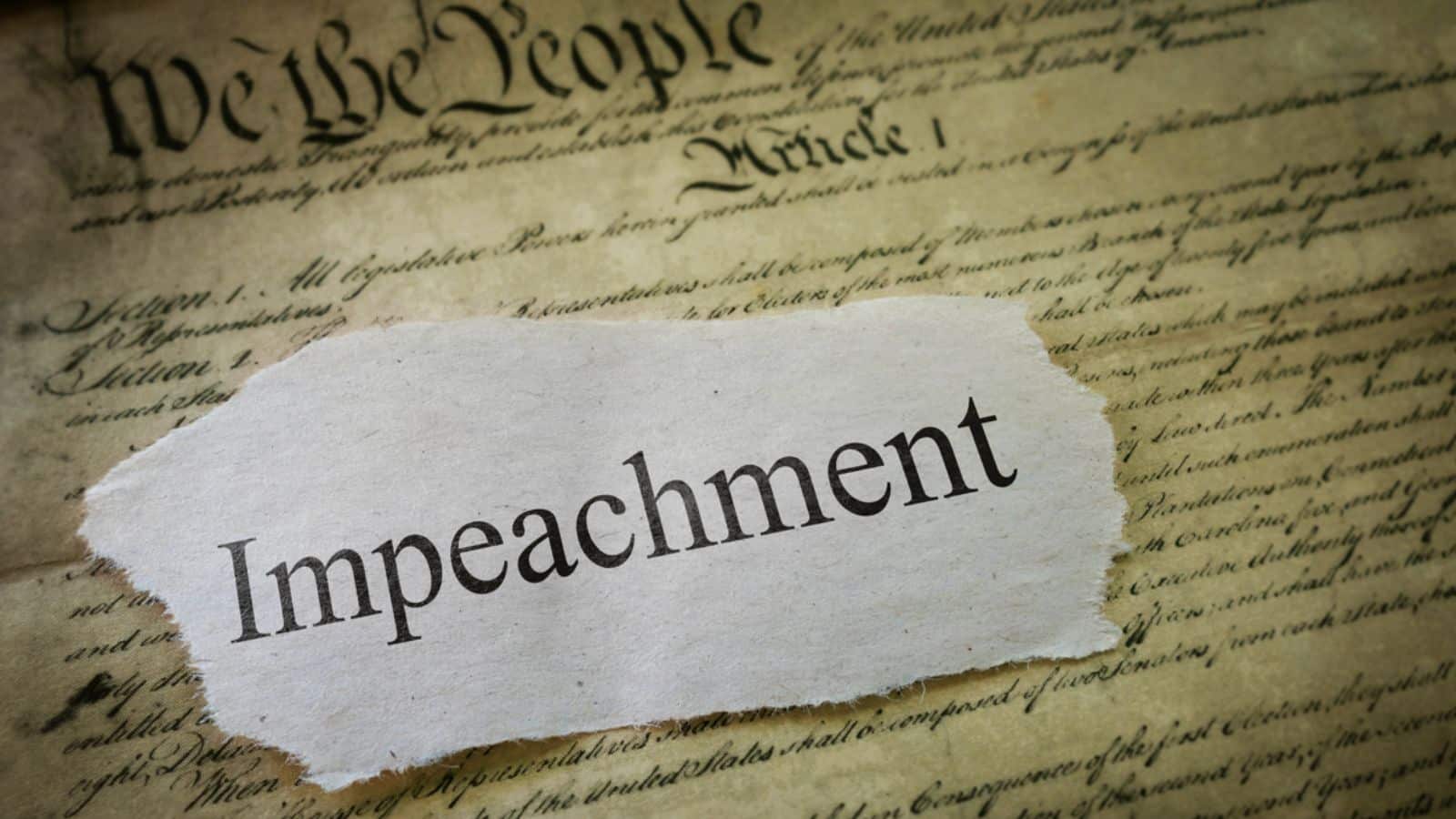
Editorial credit: zimmytws / Shutterstock.
In the annals of American history, a unique and unprecedented occurrence unfolded as Trump faced the distinction of being impeached twice by the House of Representatives. This notable circumstance distinguishes his presidency, setting it apart from all others in the nation’s chronicles. The dual impeachment, an unparalleled event, underscores the tumultuous and controversial nature of his tenure in office, provoking discussions on accountability, constitutional processes, and the enduring impact on the country’s political landscape.
Climate Change Denial

Editorial credit: Piyaset/Shutterstock.
Disregarding compelling scientific data, Trump’s departure from the Paris Climate Agreement is a significant action. Wikipedia reports a widespread denouncement of this move, drawing criticism from various quarters, including environmentalists, religious groups, business magnates, and scientists globally. Notably, most Americans opposed this withdrawal, aligning their sentiments with the broader disapproval resonating both domestically and internationally. The decision’s ramifications extend beyond policy, affecting diverse stakeholders and sparking a collective call for reconsideration.
Healthcare

Editorial credit: Valeri Luzina / Shutterstock.
Seeking to unravel Obamacare, his endeavors threatened to render millions without accessible health insurance. As reported by The Guardian, the potential repercussions were dire, with more than 20 million Americans facing the prospect of losing their health coverage, sparking widespread discontent. The proposed Republican healthcare alternatives received a scant 20% public approval, and the attempts to navigate these bills through Congress resulted in a series of embarrassing setbacks, further complicating the discourse on healthcare reform.
Attacking Free Press

Editorial credit: Ron Adar / Shutterstock.
Undermining the foundations of a free press, he consistently targeted journalists and media organizations. A noteworthy study reported by The Washington Post illuminates the profound consequences of Trump’s unrelenting assault on the news media. This extensive analysis not only highlights the erosion of truth but also emphasizes the broader implications for American democracy, portraying a scenario where press freedom faces significant domestic and global challenges, calling attention to the critical role a free and uninhibited press plays in sustaining democratic values.
Lack of Transparency
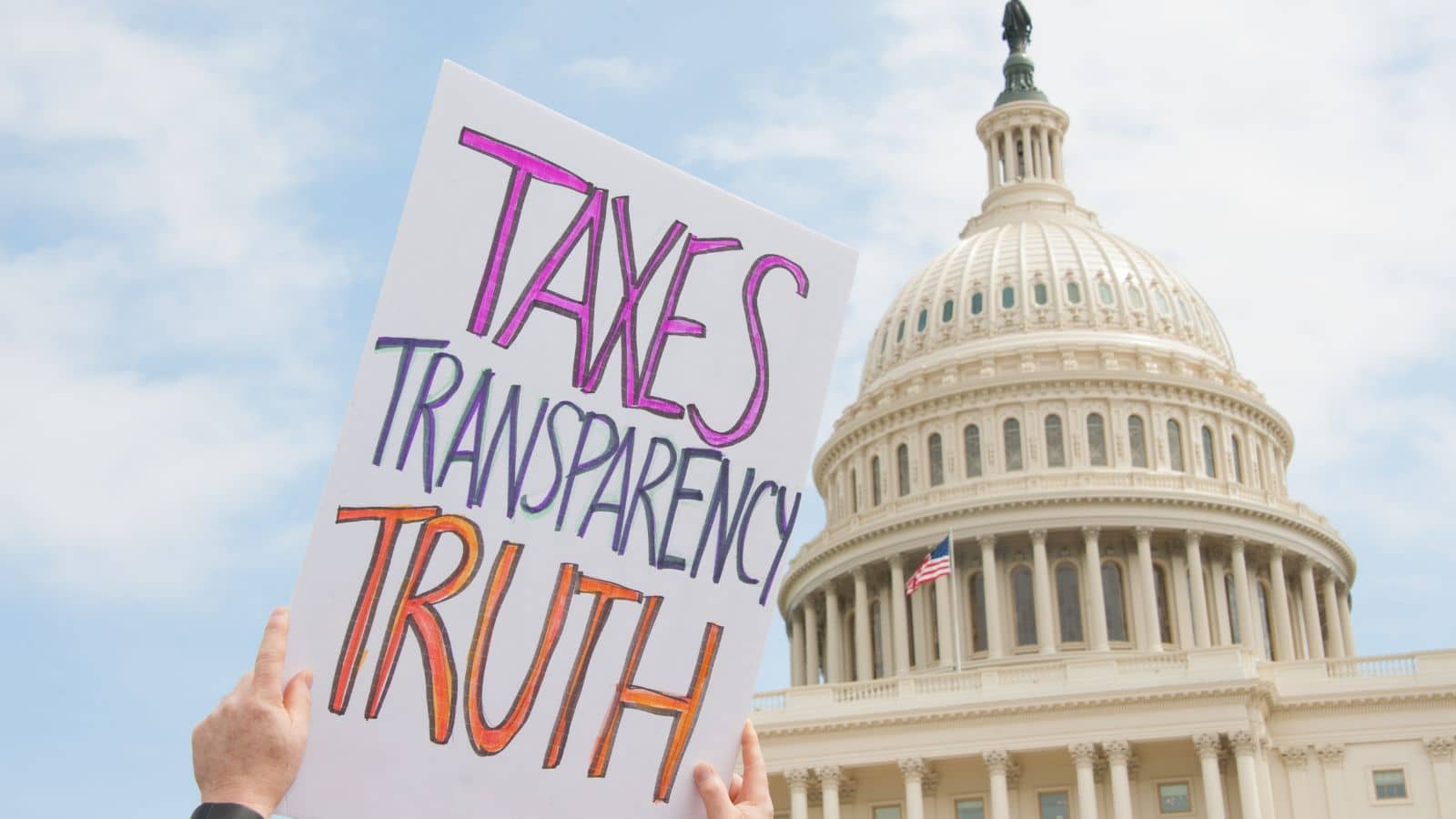
Editorial credit: Rena Schild / Shutterstock.
In a notable departure from a longstanding presidential tradition, he opted not to disclose his tax returns, a practice observed by every significant presidential nominee since 1976. Wikipedia highlights this deviation, underscoring the significance of his refusal to adhere to established norms. The historical context surrounding the release of tax returns, once considered routine, has taken a divergent turn, prompting discussions about transparency, accountability, and the evolving expectations placed on those seeking the highest office in the land.
Nepotism
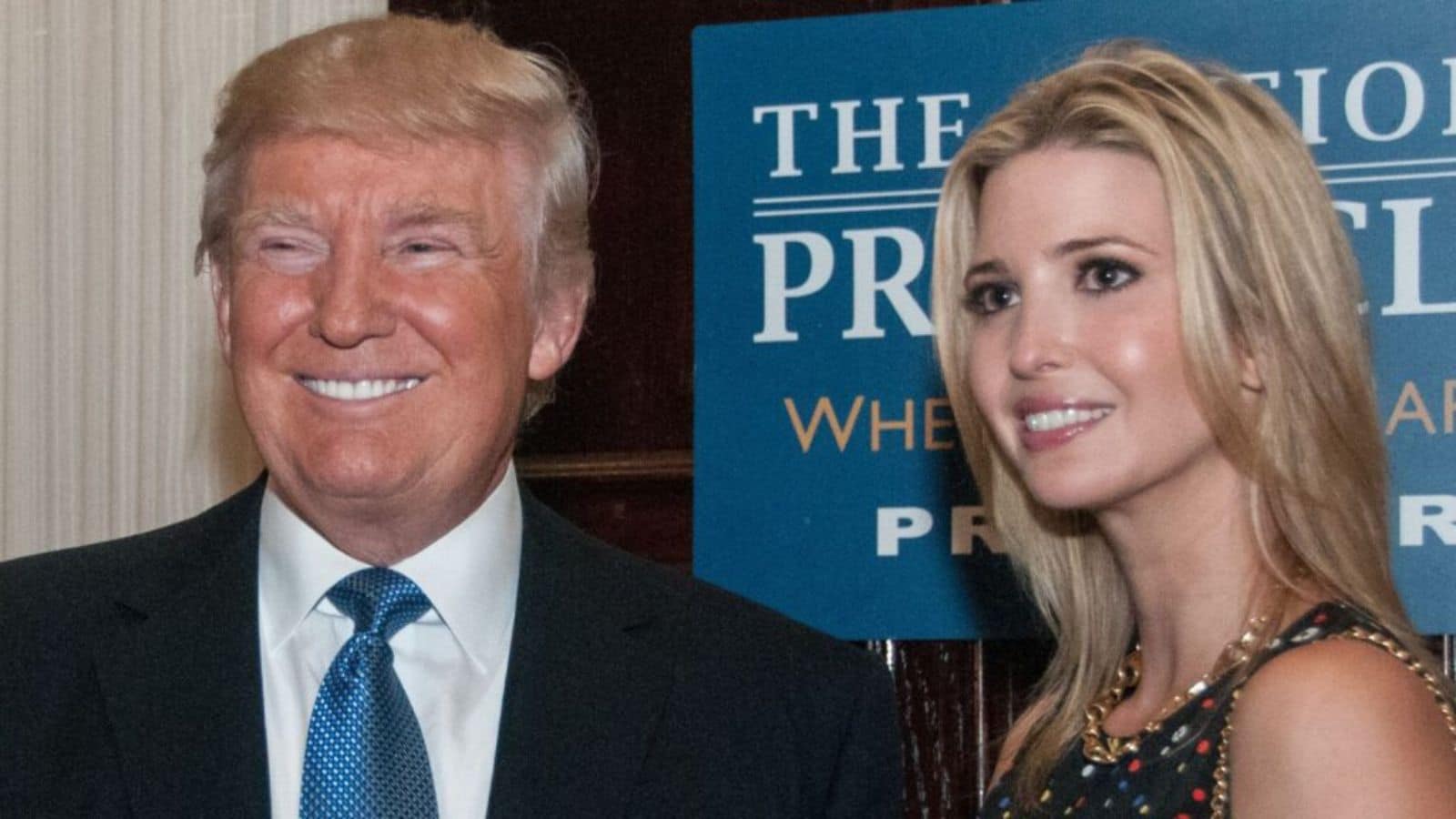
Editorial credit: Al Teich / Shutterstock.
He elevated concerns about nepotism and appointed family members to crucial roles, prompting discussions on ethical considerations. Intriguingly, as reported by Vanity Fair, Trump allegedly contemplated nominating Ivanka for the prestigious position of President of the World Bank. This surprising revelation, however, took an unexpected turn when Steven Mnuchin, Trump’s treasury secretary, intervened in the decision-making process, altering the course of potential family-centric appointments and redirecting attention to the complexities surrounding such appointments.
COVID-19 Response

Editorial credit: Audio und werbung / Shutterstock.
Widespread criticism surrounded his administration’s response to the pandemic, highlighting notable deficiencies in preparation and coordination. Notably, his endorsement of risky practices like bleach added another layer of concern. The public and experts expressed dismay over the lack of foresight and strategic alignment in addressing the crisis. The fallout from these perceived shortcomings amplified public skepticism and raised questions about the government’s ability to navigate and manage unprecedented health challenges effectively.
Supreme Court Appointments
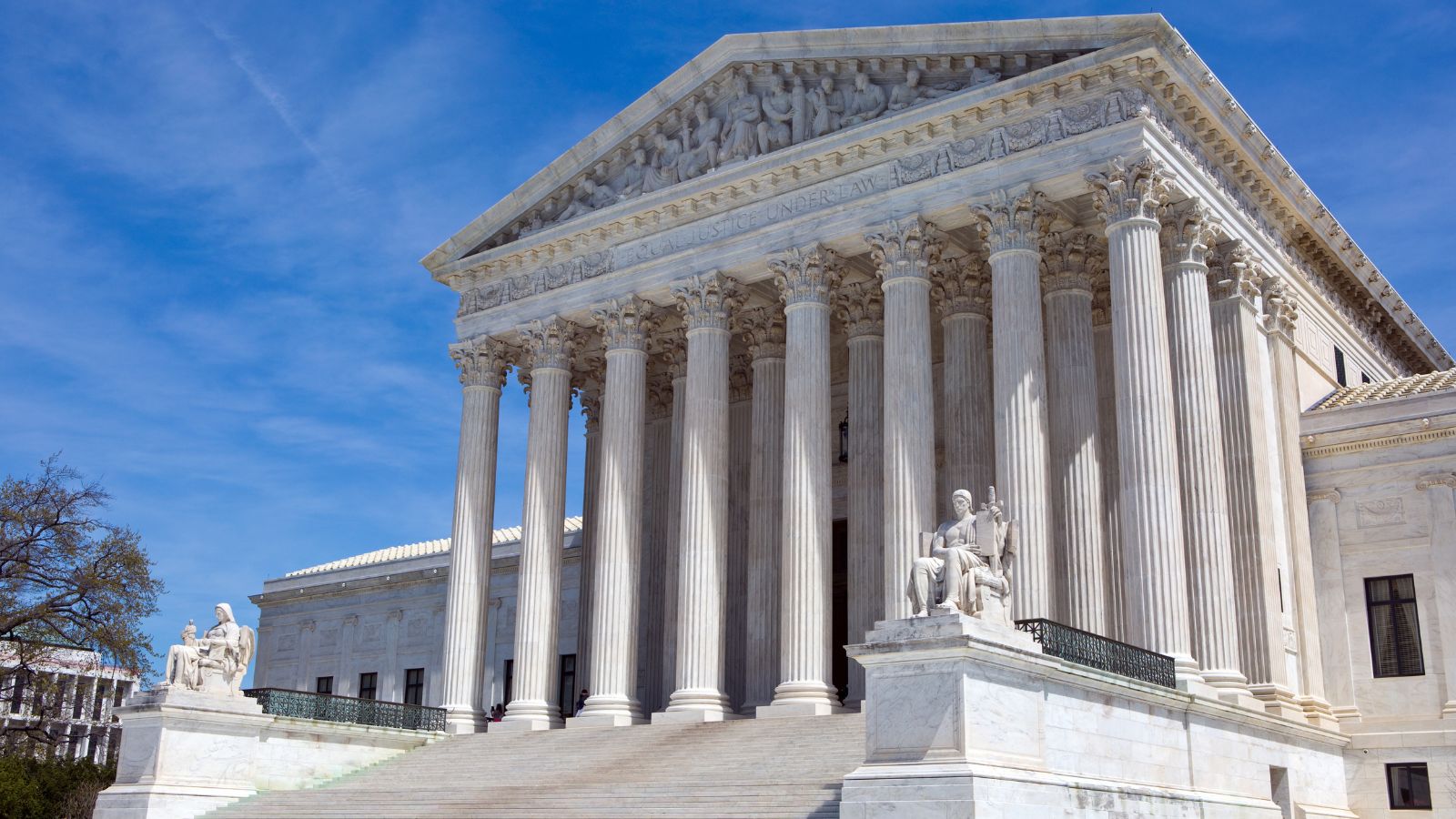
Editorial credit: Steven Frame/ Shutterstock.
The nominations to the Supreme Court under his leadership have frequently stirred controversy, marked by political motivations that have not escaped public scrutiny. According to Politico, Trump’s enduring legacy is now intertwined with the composition and dynamics of the Supreme Court. The political undertones surrounding these nominations have injected an additional layer of complexity into the judicial branch, prompting discussions about the enduring impact on the court’s decisions and the perception of impartiality within the highest echelons of the justice system.
Cronyism

Editorial credit: Evan El-Amin / Shutterstock.
Throughout his administration, accusations of favoritism and cronyism have pervaded, casting shadows over the integrity of decision-making processes. Allegations of showing undue preference and fostering close-knit affiliations have been persistent, contributing to an atmosphere of skepticism. The prevalence of such claims prompts scrutiny of the ethical foundations guiding the administration’s actions, raising questions about fairness, transparency, and the equitable distribution of opportunities within the corridors of power. Whether substantiated or perceived, these accusations add complexity to the public’s perception of governance.
National Debt

Editorial credit: Michael Vi / Shutterstock.
Contrary to assurances, the national debt witnessed a substantial surge during his administration, marking a pivotal aspect of his presidency. As outlined by The Washington Post, President Donald Trump’s tenure leaves an enduring imprint, with one notably detrimental legacy being the unprecedented escalation of the national debt. This pronounced increase in financial obligations has become a defining characteristic, sparking discussions about fiscal responsibility, economic repercussions, and the enduring impact on future generations burdened by accumulated debt.
Pardoning Allies

Editorial credit: Mega Pixel / Shutterstock.
Utilizing the presidential pardon authority, he has granted clemency to associates, sparking ethical considerations. Berkeley News underscores that the power of pardons extends beyond mere protection; it serves as a potent instrument to directly address the challenging facets of the criminal justice system. Absolving allies through this executive power prompts a reflection on the broader implications for justice, accountability, and the delicate balance between presidential authority and ethical governance in legal affairs.
Impulsive Policy Decisions

Editorial credit: vinnstock/ Shutterstock.
In policy formulation, Donald Trump exhibited a penchant for abrupt and impulsive decisions, leading to tensions with pivotal global allies. According to GovInfo, a discernible shift is observable as U.S. allies seem to divert their attention away from U.S. opposition to their policies. This shift is rooted in a growing conviction that the United States is actively undermining its fundamental interests, prompting a reconsideration of the once-unquestioned alliance dynamics.
Racial Tensions
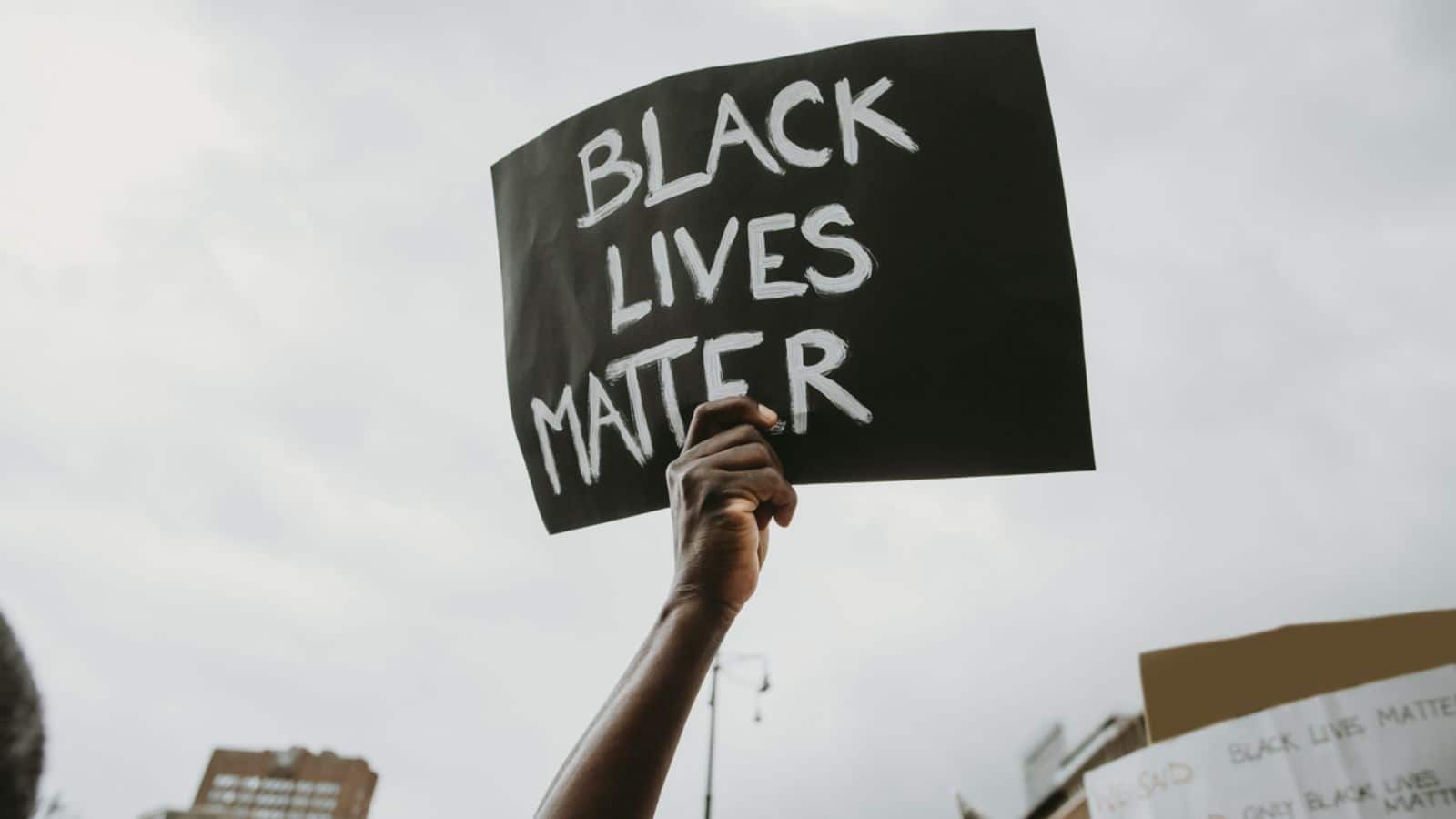
Editorial credit: Eugenio Marongiu / Shutterstock.
In the face of racial tension and protests, his reactions have frequently been characterized by insensitivity and the instigation of inflammatory rhetoric. Handling these critical situations has raised significant concerns, as his responses lack the empathetic tone expected from a leader. The provocative language further exacerbates the existing tensions, diminishing the prospects for constructive dialogue. This recurrent pattern of insensitivity underscores the challenges in fostering unity and understanding in a society grappling with issues of racial injustice and inequality.
Conflicts of Interest

Editorial credit: Drop of Light / Shutterstock.
Frequent clashes between his presidential responsibilities and business interests have been recurring. Time Magazine sheds light on a staggering conflict involving not just one but eight mysterious Trump companies. Interestingly, these entities surfaced just before Trump’s campaign, intending to embark on opulent real estate ventures in Saudi Arabia. Notably, Trump publicly articulated his inclination to support the mentioned country while holding the presidential office. The intricacies of this scenario add a layer of intrigue, prompting contemplation on the complexities inherent in managing both public duties and private enterprises.
Undermining Democracy
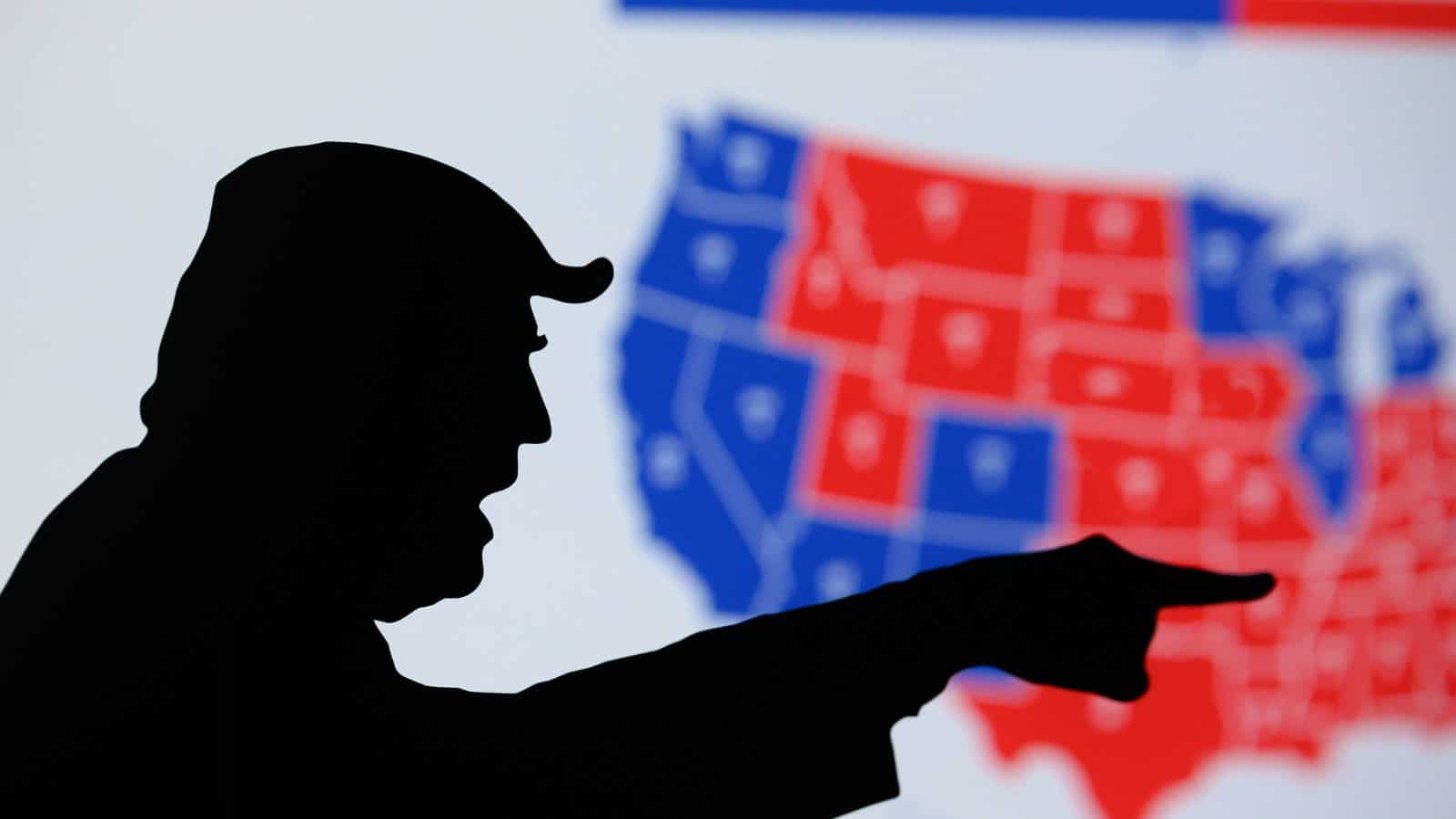
Editorial credit: kovop / Shutterstock.
The democratic fabric of America faced a significant challenge when he declined to concede the 2020 election, coupled with the dissemination of unfounded allegations of election fraud. This refusal and the accompanying false claims have cast a shadow on the integrity of the electoral process, creating a precarious situation for the nation’s democratic principles. The election’s aftermath witnessed a turbulent period, marked by heightened tensions and debates surrounding the legitimacy of the results, prompting crucial reflections on the resilience and fragility of the democratic system.
Misinformation

Editorial credit: Panchenko Vladimir/ Shutterstock.
Frequently caught disseminating falsehoods and misinformation, Trump’s actions have eroded public trust in a consequential manner. The constant refrain of “Fake News,” echoing from various quarters, has become emblematic of this administration’s approach to discrediting information sources. The persistent challenges to the integrity of widely accepted facts contribute to a climate of skepticism and uncertainty. The impact of this dynamic on public discourse and the democratic process itself is a matter of ongoing concern and discussion.
Trade Wars
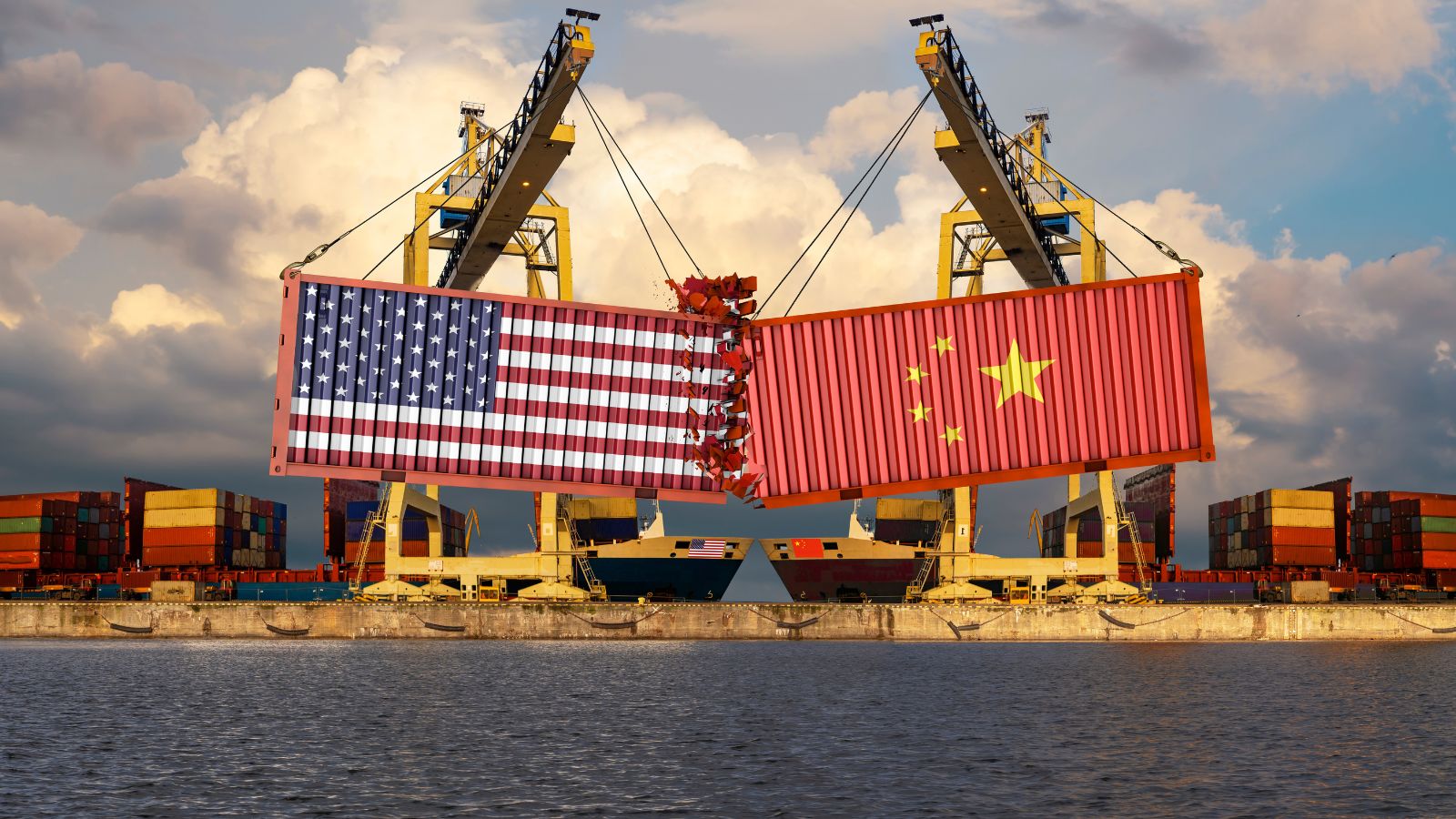
Editorial credit: Mike Mareen / Shutterstock.
Engaging in assertive trade policies, especially concerning China, resulted in adverse consequences for American businesses and consumers. According to Brookings, the repercussions of Trump’s tariffs were predominantly shouldered by domestic firms and consumers, bearing the brunt of the associated costs. While certain workers in industries competing with imports experienced positive outcomes, those reliant on imported inputs and participants in export-oriented sectors encountered retaliatory measures from trade partners, creating challenging circumstances for them to navigate.
Lack of Decorum
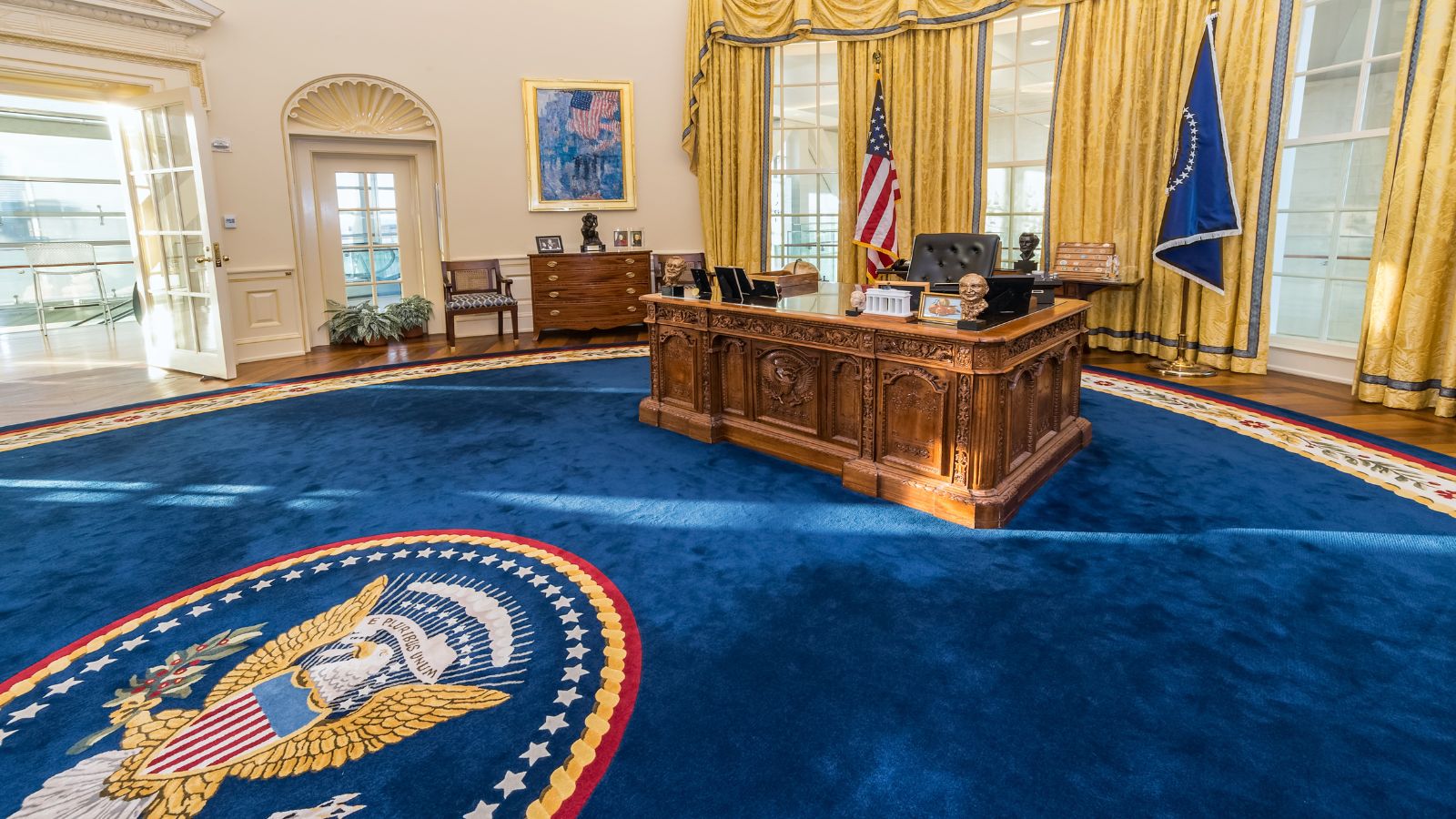
Editorial credit: amadeustx / Shutterstock.
The conduct exhibited, both online and offline, has consistently caused embarrassment to the esteemed office of the presidency. The former President’s behavior, falling short of the expected standards, has drawn attention to its un-presidential nature. This deviation from the traditional etiquette associated with the role has been a matter of frequent public scrutiny. The consequential impact on the image of the office has been a subject of considerable discourse, as citizens and observers alike express concern about the need for a more dignified and representative leadership demeanor.
Immigration Policy
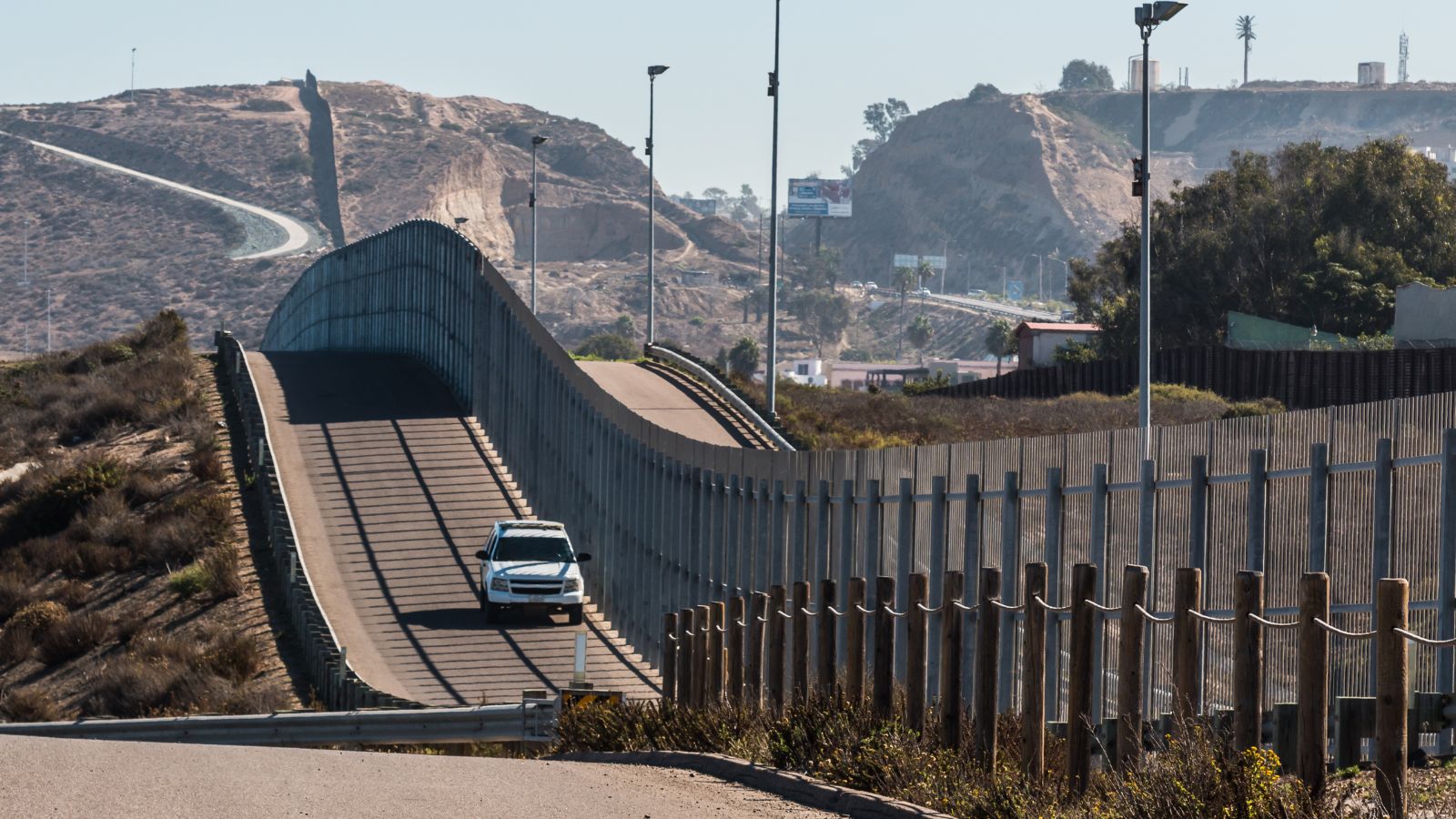
Editorial credit: Sherry V Smith / Shutterstock.
Widely criticized for its perceived inhumanity is his stringent approach to immigration, as evidenced by the much-debated border “wall” with Mexico. This policy has faced substantial censure for its perceived harshness. The controversial nature of this stance has prompted extensive public discourse, eliciting concerns about its ethical implications and practical effectiveness. The construction of the border barrier represents a divisive point, with critics highlighting its potential adverse impact on human lives and the broader socio-political landscape.
Terrifying Prospects: 12 Moves Trump Could Unleash If Re-elected in 2024

Editorial credit: lev radin / Shutterstock.
Terrifying Prospects: 12 Moves Trump Could Unleash If Re-elected in 2024
21 Things MAGA Followers Permanently Destroyed For Everyone Else

Editorial credit: Christian David Cooksey / Shutterstock.
21 Things MAGA Followers Permanently Destroyed For Everyone Else
America’s 15 Most Miserable States Revealed: Data Shows Places You Don’t Want to Live

Image Credit: Shutterstock.
America’s 15 Most Miserable States Revealed: Data Shows Places You Don’t Want to Live
12 Ways the World Suffered from Trump’s Reckless Moves

Editorial credit:Evan El-Amin / Shutterstock.
12 Ways the World Suffered from Trump’s Reckless Moves
Trump’s Hit List: 18 Brands That Incited the Wrath of the Former President

Editorial credit: Joseph Sohm / Shutterstock.
Trump’s Hit List: 18 Brands That Incited the Wrath of the Former President



